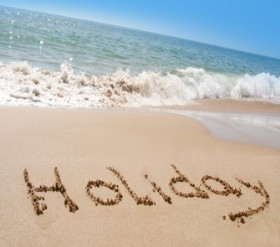Here are five great strategies to make sure you get the biggest possible bang for your buck on your next big trip.

Here are five great strategies to make sure you get the biggest possible bang for your buck on your next big trip.
1. Avoid the areas swarming with tourists
New York, London, Rome. With so much hype about these places, businesses in these cities tend to inflate the price of anything remotely tourist-related.
Why not consider getting off the beaten track? Visit somewhere that doesn’t cater to western tourists or take advantage of their spending. Going to South East Asia, for instance, will not only turn out to be much cheaper than Europe but will arguably provide you with a culturally richer experience.
For example, if you stayed at the five-star Six Senses and Evason in Thailand’s lesser-known district of Hua Hin, you would merely pay $93 per night. However, if you stayed at the same resort in the more popular area of Laamu in Maldives, you would be forking out $860 each night.
However, you can also save money if you are at the more popular destinations. A key trick is to dine out where the locals eat, which is simply a matter of walking a few blocks away from the tourist district. Not only will the food be more authentic, but restaurants that cater to the locals rather than tourists tend to be cheaper – we found that you can save about 20 Euros by doing so in Barcelona, for example.
2. Travel off-peak
If your schedule allows it, avoiding the peak seasons can save you bucketloads in airfares and accommodation. Booking a Sydney-Dubai flight with Emirates in September is over $270 cheaper than catching the same flight in Dubai’s summer month of July.
3. Package it all together, early
It pays to book everything months in advance if you’re only option is to travel during the peak season, before hotels and airlines push up the prices to take advantage of the booking rush. Using a travel agent can often get you a better deal.
“Hotels and airlines can often provide a reduced price if the travel agency packages the flight and hotel together because none of its competitors can see that the flight and accommodation prices have been reduced”, says James Gaskell, managing director of ZUJI Australia.
If you separately purchased a domestic flight and a three-night holiday in advance, you would save over $50 per person. However, packaging a one-week holiday in Thailand could save you $200.
4. Avoid unnecessary fees
Whether it’s car hire, your travel agent, airfares or hotel – don’t click “PAY NOW” until you’ve read about all the hidden fees so you can avoid being stung by hefty credit card surcharges or booking fees.
For example, booking a flight with comparison site webjet.com will cost you $80 in credit card surcharges, booking price guarantee and processing fees – and then there’s the airfare itself!
5. Couchsurf
For those who want to ditch the hotel, couchsurfing could be your thing. It is simply staying at a local’s home, who (depending on how generous they are) will show you the city from a perspective that beats that of a tacky tourist guide. It has a reputation for being a safe and reliable way to travel; you can learn about and compare potential hosts and hostesses at social networking sites for couchsurfers such as couchsurfing.org. Did we mention couchsurfing is free?
-- By Stephanie Hanna
 Here are five great strategies to make sure you get the biggest possible bang for your buck on your next big trip.
Here are five great strategies to make sure you get the biggest possible bang for your buck on your next big trip. Here are five great strategies to make sure you get the biggest possible bang for your buck on your next big trip.
Here are five great strategies to make sure you get the biggest possible bang for your buck on your next big trip.
Share